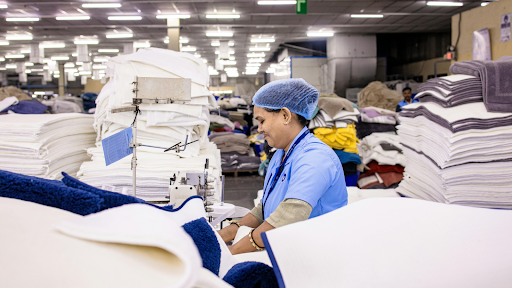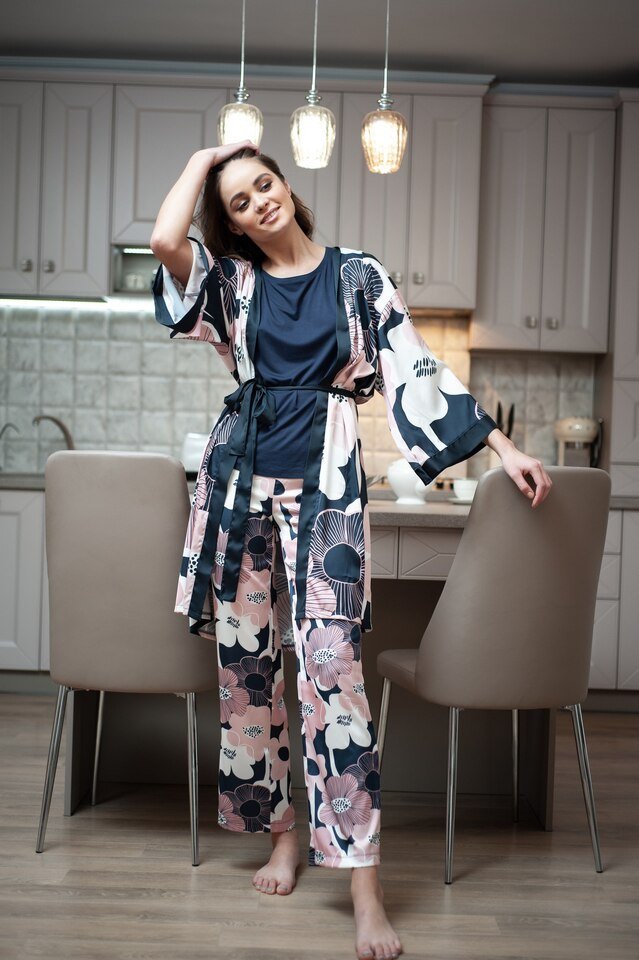Are you a fashion entrepreneur eager to bring your designs to life without compromising on quality or ethics? Whether you’re launching your first collection or scaling production for your growing brand, choosing the right manufacturing partner in the garment manufacturing industry is a decision that can shape your success.
With hundreds of manufacturers across continents, the challenge isn’t just finding a manufacturer—it’s finding the right one. A reliable partner in the garment manufacturing industry ensures high-quality production, ethical labor practices, scalability, and seamless logistics—all of which directly impact your brand’s reputation and profitability.
In this guide, we break down the seven essential factors that can help you identify a reliable apparel manufacturer in the garment manufacturing industry, and we’ll also share how Kanika Global is helping brands worldwide meet these exact needs.
1. Manufacturing Expertise and Specialization
Why It Matters:
No two manufacturers in the garment manufacturing industry are the same. Some excel in intricate embroidery, others in bulk basics. Matching their expertise with your brand’s niche is non-negotiable. A manufacturer specializing in your category will understand fabric behavior, stitching techniques, and design intricacies that a generalist might overlook.
What to Look For:
- Do they specialize in your category (e.g., bridal, children’s, streetwear)?
A manufacturer experienced in bridalwear will know how to handle delicate lace, beadwork, and structured silhouettes, while a streetwear manufacturer will be adept at working with heavy knits and screen printing. - Can they show a portfolio with similar products?
Request case studies or past work to verify their capability to produce garments like yours. - Are they familiar with your market standards and regulations?
Different regions have different compliance requirements (e.g., flammability standards for children’s sleepwear in the US, REACH regulations in the EU).
How Kanika Helps:
Kanika Global offers deep specialization in Bridal, Bridesmaid Dresses, Children’s Wear, and Ladies’ Wear, making them a standout player in the garment manufacturing industry. Their artisans and production team understand the nuances of delicate fabrics, precision detailing, and category-specific sizing, ensuring your garments not only look good but feel right.
With decades of experience, Kanika has mastered the art of crafting high-end bridal gowns with intricate embellishments, perfectly fitted bridesmaid dresses, and comfortable yet stylish children’s apparel. Their expertise ensures that your designs are executed flawlessly, with attention to every stitch and seam.
2. Quality Standards and Certifications
Why It Matters:
A single defective batch can damage your brand reputation and customer trust. Quality control in the garment manufacturing industry isn’t just about aesthetics—it’s about durability, fabric safety, and consistency.
What to Look For:
- ISO 9001, OEKO-TEX, and GOTS certifications
These certifications ensure that the manufacturer follows international quality and safety standards in the garment manufacturing industry. - In-house quality control teams and testing protocols
A strong QC team checks for defects at multiple stages—fabric inspection, cutting, stitching, and finishing. - Willingness to send samples and pass third-party audits
Reputable manufacturers will provide pre-production samples and allow independent quality checks.
How Kanika Helps:
Kanika Global adheres to ISO, OEKO-TEX, GOTS, and SEDEX standards, which means every stitch is backed by rigorous quality assurance. From fabric sourcing to final inspections, quality is monitored at every stage.
Their multi-tier quality checks include:
- Fabric Testing: Ensuring the material meets durability and safety standards.
- Pre-Production Samples: Allowing brands to approve fit and design before bulk production.
- Final Inspection: A thorough check before shipping to prevent defects.
3. Ethical and Sustainable Practices
Why It Matters:
Today’s consumers want more than just stylish clothing—they want transparency. Brands that can prove they care about the planet and people win loyalty and press attention in the garment manufacturing industry.
What to Look For:
- ESG-aligned labor practices
Fair wages, safe working conditions, and no child labor. - Sustainable materials and processes
Organic cotton, recycled fabrics, low-impact dyes, and water-saving techniques. - Certifications for ethical operations (e.g., SEDEX, GOTS)
These certifications validate ethical sourcing and production.
How Kanika Helps:
Kanika is committed to responsible sourcing, fair labor, and eco-friendly production, setting a benchmark in the garment manufacturing industry. From organic textiles to water-saving dyeing techniques, their entire process is designed to reduce environmental impact while upholding human dignity.
Their sustainability initiatives include:
- Eco-Friendly Fabrics: Use of GOTS-certified organic cotton and recycled materials.
- Waste Reduction: Efficient pattern cutting to minimize fabric waste.
- Ethical Labor: Compliance with SEDEX, ensuring fair wages and safe workplaces.
4. Production Capacity and Scalability
Why It Matters:
What if your viral design suddenly needs 10x production next month? Will your manufacturer in the garment manufacturing industry keep up?
What to Look For:
- Scalable production lines
Ability to handle both small and large orders efficiently. - Flexibility for seasonal orders and new launches
Quick turnaround for urgent or limited-edition collections. - Transparent lead times and MOQs
Clear communication on minimum order quantities and production timelines.
How Kanika Helps:
Kanika Global supports both small-batch production and large-scale orders, making them an ideal partner in the garment manufacturing industry for startups testing the market as well as established brands scaling collections.
Their modular production system allows them to:
- Handle low MOQs (as few as 50-100 pieces per design).
- Ramp up to 10,000+ units per month for high-demand brands.
- Adjust quickly to seasonal trends and rush orders.
5. Communication and Transparency
Why It Matters:
Delays, misunderstandings, or a lack of updates can result in missed launches and frustrated customers in the garment manufacturing industry.
What to Look For:
- Dedicated account manager or point of contact
- Clear timelines and production updates
- Issue escalation protocols
How Kanika Helps:
With proactive communication, milestone-based reporting, and a responsive support team, Kanika ensures that brands remain in the loop, from tech packs to final shipping in the garment manufacturing industry.
Their communication process includes:
- Weekly production updates with photos/videos.
- Real-time tracking of order status.
- 24/7 customer support for urgent queries.
6. Cost and Pricing Structure
Why It Matters:
You don’t want the cheapest—you want the best value in the garment manufacturing industry.
What to Look For:
- Transparent pricing breakdowns
- Flexibility for long-term or bulk orders
- No hidden fees in logistics or packaging
How Kanika Helps:
Kanika offers competitive pricing with no compromise on quality. Whether you need sampling or a full production run, their clear and fair pricing model makes budgeting easier, making them a cost-effective choice in the garment manufacturing industry.
Their pricing advantages:
- No surprise costs—fabric, labor, and shipping are outlined upfront.
- Discounts for long-term partnerships and bulk orders.
- Cost-saving recommendations (e.g., fabric alternatives that maintain quality but reduce expenses).
7. Logistics and Delivery Efficiency
Why It Matters:
Even the best product is useless if it arrives late or damaged in the garment manufacturing industry.
What to Look For:
- Proven track record for on-time delivery
- Export and customs expertise
- Partnerships with reliable logistics providers
How Kanika Helps:
Based in India with robust international logistics support, Kanika ensures timely delivery to Europe, the Middle East, and the USA. Their freight coordination and customs assistance minimize delays and surprises at the border, a critical advantage in the garment manufacturing industry.
Their logistics strengths:
- DHL, FedEx, and sea freight partnerships for cost-effective shipping.
- Pre-cleared customs documentation to avoid delays.
- Warehousing options for brands needing inventory storage.
Final Thoughts: Why Kanika Global Is a Trusted Partner for Global Fashion Brands
For over 40 years, Kanika Global has helped brands translate sketches into bestsellers in the garment manufacturing industry.
Here’s what makes them stand out:
- Deep specialization in bridal, children’s wear, and ladies’ garments
- Strong ethical and sustainability certifications (ISO, GOTS, OEKO-TEX, SEDEX)
- Small to large-scale production support
- Transparent communication and collaborative design support
- Export-ready operations and global logistics support
From Paris runways to Middle Eastern boutiques, Kanika Global is the silent force behind many successful labels in the garment manufacturing industry.
Whether you’re building a capsule collection or scaling your global operations, Kanika Global combines craftsmanship, compliance, and consistency—everything a fashion brand needs to succeed.
FAQs
Q1: Can Kanika Global help with sampling and product development?
Yes, they offer sampling services to help brands refine designs before committing to full-scale production.
Q2: What is the typical MOQ for new clients?
Kanika offers flexible MOQs depending on the garment type and complexity—ideal for emerging brands.
Q3: Is Kanika open to working with designers and start-ups?
Absolutely. They’ve partnered with both niche labels and large-scale global retailers.
Q4: How long does production typically take?
Depending on the order size and garment type, lead times range from 4 to 8 weeks, including sampling, approval, and final delivery.


